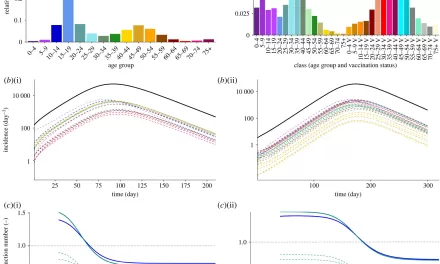A new study from Karolinska Institutet, published in JAMA Pediatrics, has revealed that children suffering from Avoidant Restrictive Food Intake Disorder (ARFID) are at a significantly higher risk of developing both psychiatric and physical conditions. These findings highlight the urgent need for early identification and intervention to improve the care and well-being of affected children.
Understanding ARFID
ARFID is an eating disorder characterized by extreme food avoidance, often due to sensory aversions related to taste, texture, smell, or appearance. Additionally, children with ARFID may fear negative consequences of eating, such as choking or vomiting, and often experience a general lack of interest in food.
“The eating disorder has serious consequences, including malnutrition, weight loss, and faltering growth, while some individuals may become overweight,” explains Lisa Dinkler, assistant professor at the Department of Medical Epidemiology and Biostatistics, Karolinska Institutet. “For example, a child might only want to eat beige-colored food, limiting their diet to chips, ice cream, crisps, and pancakes. In extreme cases, children have even developed blindness due to vitamin A deficiency.”
Findings from the Study
The study examined data from nearly 31,000 children in the Swedish Twin Registry, with 616 (2%) of them identified as having ARFID between the ages of 6 and 12. The research revealed that children with ARFID were ten times more likely to have an intellectual disability or autism compared to those without the disorder.
Additionally, children with ARFID faced significantly increased risks for other medical conditions:
- Gastroesophageal reflux disease (GERD): 7 times the risk
- Epilepsy: 6 times the risk
- Chronic lung diseases: 5 times the risk
Increased Medical Diagnoses and Hospitalization Rates
The study also found that children with ARFID, irrespective of sex, required more medical diagnoses and longer hospital stays than their peers.
“Our results show that ARFID is more than just an eating disorder—it’s a complex condition that often co-exists with other serious health issues,” says Dr. Dinkler. “This underscores the importance of healthcare providers taking a holistic approach to these children’s needs. We hope these findings will contribute to better detection and more personalized care, ultimately improving the prognosis for children with ARFID.”
Future Research Directions
Following these findings, researchers aim to explore how ARFID develops into adulthood and the genetic and environmental factors influencing its connection with other psychiatric and physical conditions.
Conclusion
This study underscores the critical need for greater awareness and comprehensive healthcare strategies for children with ARFID. By recognizing the disorder early and addressing its associated health risks, medical professionals and caregivers can work toward better outcomes for affected children.
Disclaimer: This article is for informational purposes only and does not constitute medical advice. If you suspect your child has ARFID or another eating disorder, please consult a healthcare professional.











